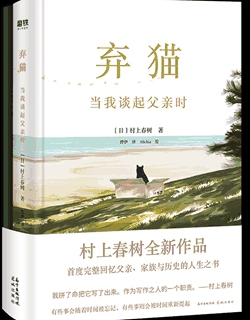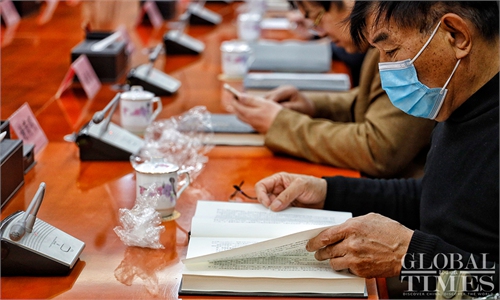ARTS / BOOKS
Chinese version of Haruki Murakami’s book on his father’s involvement in WWII published on Thursday

Book cover of Abandoning A Cat: What I Talk About When I Talk About My Father Photo: Courtesy of Beijing Xiron Culture Group Co., Ltd.
The Chinese version Abandoning A Cat: What I Talk About When I Talk About My Father written by Japanese writer Haruki Murakami was published on Thursday.
Murakami, known as an excellent "post-Second World War writer," is highly popular in China for his works including Norwegian Wood and Hear the Wind Sing.
Many Chinese netizens expressed high anticipation for the author's new book as it focused on his father and his father's involvement in the War of Resistance against Japanese Aggression (1931-45).
In the book, Murakami covers his father's entire life, while recalling his long bitter relationship with his father for almost 20 years. He shows to readers the vacillation and fear his father had experienced in life and how his father's life becomes a source of confusion and anxiety about the world for him.
Murakami also reflects on the war. He criticizes the immoral deeds of the Japanese military and tries to look for a connection between the lives of individuals and world history.
"One summer afternoon, my father and I went to the beach to abandon a cat…" But when they go back, the cat has already returned home, waiting for them.
"Haruki Murakami bluntly compares his father to the abandoned cat. The book is just prose, but for Murakami, it is an important book about his thinking on life," Li Jingze, vice president of the China Writers Association, told the Global Times.
Deng Anqing, a Chinese writer and a professor at the Philosophy Academy of Fudan University in Shanghai, told the Global Times that the book's topic was a very rare choice for the writer as he has never mentioned any details about his family in his more than 40-year-long writing career.
"I tried my best to write it out. It is a duty as a writer," Murakami said after writing the book.
Deng said that "luck" and "unpleasantness" are the two words that impressed him the most after reading the book. His father once served in the army for three times. The first two companies are destroyed during the war after his father left, and then the war came to an end two months later after he joined for a third time.
His father escaped from the clutches of the war unscathed again and again, which is great fortune and luck, but this is also where the "unpleasantness" lies. All his former comrades lost their lives on remote battlefields for nothing. The only survivor, his father must endure great pain and guilt in his heart.
"As a Japanese writer, Haruki Murakami did not deliberately ignore the existence of the War of Resistance against Japanese Aggression, nor distort and justify it by beautifying it. He has always been a staunch anti-war writer," said Deng.




